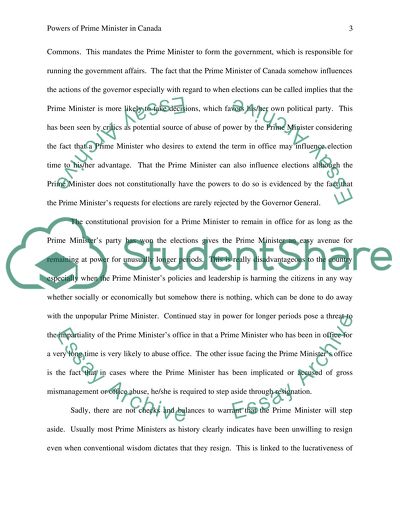Cite this document
(“Powers of Prime Minister in Canada Essay Example | Topics and Well Written Essays - 1750 words”, n.d.)
Retrieved from https://studentshare.org/politics/1526295-powers-of-prime-minister-in-canada
Retrieved from https://studentshare.org/politics/1526295-powers-of-prime-minister-in-canada
(Powers of Prime Minister in Canada Essay Example | Topics and Well Written Essays - 1750 Words)
https://studentshare.org/politics/1526295-powers-of-prime-minister-in-canada.
https://studentshare.org/politics/1526295-powers-of-prime-minister-in-canada.
“Powers of Prime Minister in Canada Essay Example | Topics and Well Written Essays - 1750 Words”, n.d. https://studentshare.org/politics/1526295-powers-of-prime-minister-in-canada.


